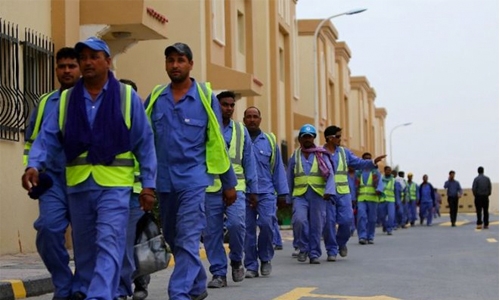Qatar abolishes ‘kafala’ system from today
Doha : Qatar yesterday formally announced the end of its controversial “kafala” system, arguably the biggest ever labour reform undertaken by the 2022 football World Cup host nation.
In a long-expected announcement, Labour Minister Issa bin Saad al-Jafali al-Nuaimi said the “kafala” rules would be abolished from December 13.
He said a contract-based system to govern the gas-rich Gulf emirate’s 2.1 million foreign workers would take its place.
Under “kafala”, all foreign workers working in Qatar require a local sponsor, in the form of an individual or company, and need their permission to switch jobs or leave the country.
“The new law is the latest step towards improving and protecting the rights of every expatriate worker in Qatar,” Nuaimi said.
“It replaces the kafala system with a modernised, contract-based system that safeguards workers’ rights and increases job flexibility.”
Freedom of movement is guaranteed under the new rules, said Qatari officials, including giving workers the right to change jobs.
Any workers mistreated will automatically be allowed to change jobs, said officials.
The exit visa formally needed to leave the country under “kafala” will be abolished, although workers will still need their employers’ permission to leave.
An appeals committee has been established for expats who are denied permission to leave, and that committee will begin work on Tuesday.
Employers who confiscate workers’ passports could be fined 25,000 Qatari Riyals ($6,800, 6,400 euros), up from 10,000 riyals under “kafala”.
Many migrant workers, especially those in the construction sector, complain they are enticed to Qatar on contracts which claim they will earn far more than they end up receiving.
The changes, known formally as Law No. 21 of 2015, were first announced by Emir Sheikh Tamim bin Hamad Al-Thani last year.
Nuaimi on Monday urged critics to give the new rules time to take effect. “However, we urge the international community not to draw any definitive conclusions until there has been time to see the new law in action.”
Related Posts

